1. Underestimating How Much Space You Really Need
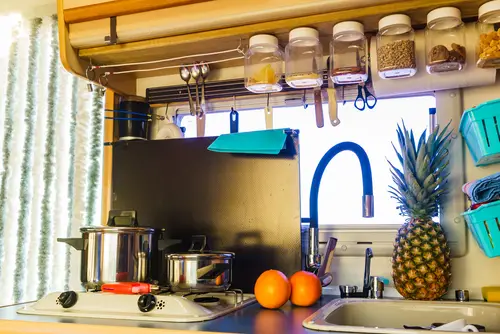
The first mistake most people make is assuming they can live with almost no space at all. Downsizing looks romantic on Instagram, but the reality of cramped quarters can quickly wear thin. If you don’t think carefully about your needs—like space for hobbies, cooking, or even just stretching—you’ll feel the walls closing in. It’s not about going big, it’s about being realistic about your lifestyle.
A well-thought-out layout makes all the difference in long-term comfort. Many first-timers don’t consider how their daily routines translate into smaller spaces. For example, if you like cooking elaborate meals, a one-burner kitchenette might feel impossible. Planning around your non-negotiables helps prevent regret down the road.
2. Forgetting About Weight Limits
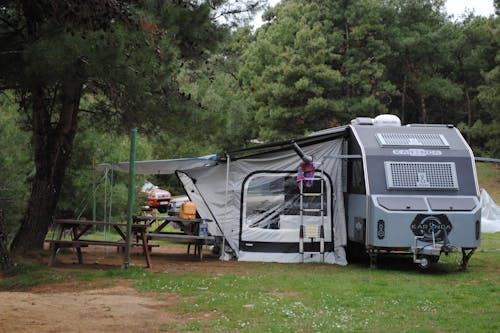
Living mobile isn’t just about fitting everything you own inside—it’s about what your vehicle can safely carry. Every van, RV, or tiny trailer has a maximum weight rating, and exceeding it can damage the suspension, brakes, or even void insurance. Beginners often cram in too many “just in case” items without doing the math. That extra box of books or second set of tools adds up faster than you think.
Ignoring weight limits also affects your safety. Overloaded rigs handle poorly, take longer to stop, and strain engines on hills. It’s better to invest in lighter, multi-purpose gear than risk breakdowns. Taking weight seriously from the start ensures both smoother travel and peace of mind.
3. Skipping Insulation and Ventilation
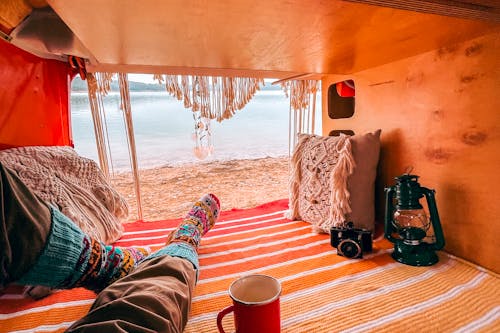
A lot of first-timers focus on décor and forget that their vehicle is still basically a metal box. Without insulation, you’ll roast in summer and freeze in winter, making your space unlivable. Proper insulation helps regulate temperatures and saves you from constantly running heaters or fans. It’s not glamorous, but it’s essential.
Ventilation goes hand-in-hand with insulation. Without airflow, moisture builds up, leading to condensation, mold, and even damage to your vehicle. A simple roof vent or window fan can make a massive difference in comfort. This is one of those behind-the-scenes details that you’ll be grateful you invested in.
4. Overlooking Electrical Needs
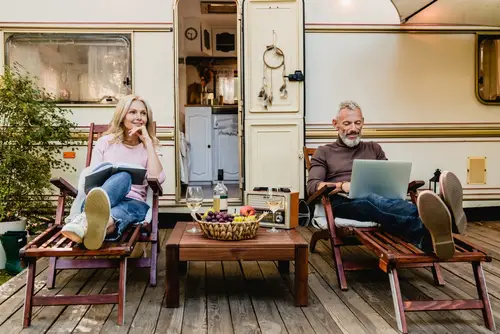
Electricity is one of the trickiest parts of mobile living, and many beginners underestimate it. People assume they can get by with a few power banks, but running fridges, laptops, or lights requires more planning. Solar panels, batteries, and inverters aren’t cheap, but they’re vital for independence. Relying on charging at cafés or friends’ houses gets old fast.
The mistake often comes from not adding up actual energy usage. Every appliance pulls a certain wattage, and those numbers matter more than you’d think. Underpowered systems mean you’ll be rationing battery life instead of enjoying your setup. Spending time on this math saves headaches and dead batteries later.
5. Forgetting About Water Storage and Waste
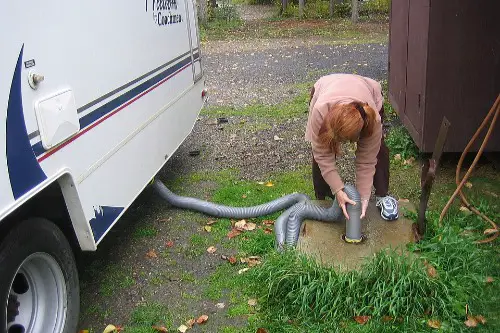
Water is heavy and bulky, which makes it easy for first-timers to underestimate how much they’ll actually need. Daily tasks like cooking, cleaning, and showering add up quickly. Running out of fresh water in the middle of nowhere is more than inconvenient—it can cut a trip short. Balancing storage with space is one of the toughest parts of setup.
Waste is the other half of the equation that many people don’t think through. Gray water tanks fill up just as fast as fresh ones empty. And if you’re using a composting or cassette toilet, you’ll need a plan for disposal. Pretending this part doesn’t exist only leads to messy problems later.
6. Packing Too Much Stuff
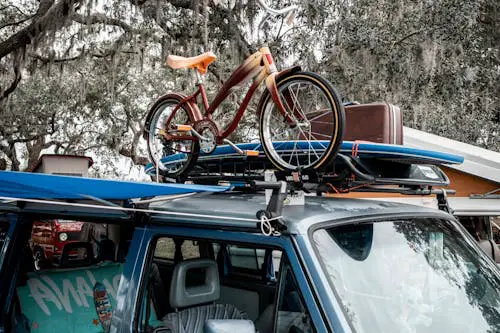
When moving into a mobile setup, it’s natural to want to bring along everything you might need. But clutter piles up quickly, and suddenly you’re drowning in things you never use. Too many clothes, gadgets, or kitchen supplies can make your living space chaotic. The less you carry, the easier it is to stay organized and comfortable.
The trick is to think in terms of multi-purpose items. A cast-iron skillet might weigh more than a frying pan, but it doubles as a baking dish. Fewer items that do more jobs are always better than lots of single-purpose gear. You’ll learn fast that freedom comes with traveling light.
7. Ignoring Security Concerns
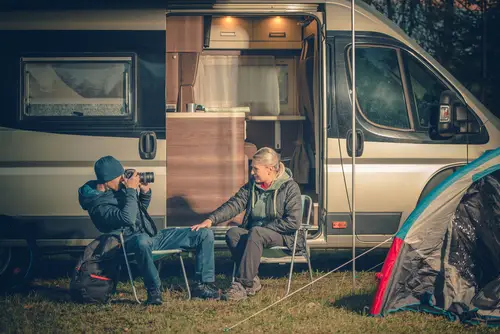
Many people assume that because they’re traveling, safety takes care of itself. But mobile living often means parking in unfamiliar areas, and theft does happen. Skipping locks, alarms, or basic safety habits can leave you vulnerable. Feeling unsafe undermines the whole idea of freedom on the road.
Security isn’t just about gear—it’s also about awareness. Simple habits like scouting areas during daylight or avoiding isolated spots go a long way. Technology helps too: GPS trackers and motion lights can deter trouble. Taking precautions early lets you relax and enjoy your journey.
8. Poor Route Planning
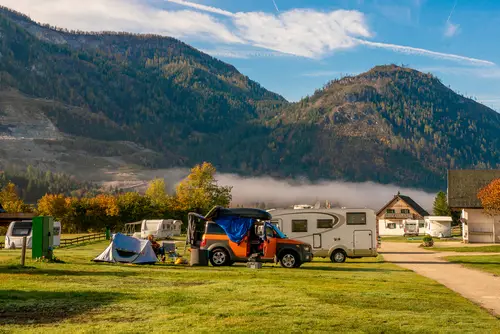
It’s easy to imagine you’ll just “drive wherever” and find a place to stay. But not every road is RV-friendly, and not every parking lot allows overnight stays. First-timers often hit dead ends or stressful situations because they didn’t research ahead. Knowing the limits of your rig and the laws in each state matters.
Apps and maps can help, but they don’t replace common sense. Steep grades, low bridges, and weight restrictions are all real issues. A little prep prevents breakdowns or awkward late-night moves. Planning routes makes travel smoother and way less stressful.
9. Forgetting to Budget for Maintenance

Living mobile isn’t a one-time investment—it’s a lifestyle that comes with ongoing costs. Tires wear out faster under constant load, engines work harder, and repairs can be expensive. Newbies sometimes blow their budget on the build-out and forget to set aside money for upkeep. The truth is, maintenance isn’t optional—it’s survival.
Even small issues like oil changes or brake pads can’t be skipped. Neglecting them risks stranding you in the middle of nowhere. Building a regular maintenance fund means you’re prepared instead of panicked. Think of it as buying peace of mind every month.
10. Overplanning the Interior
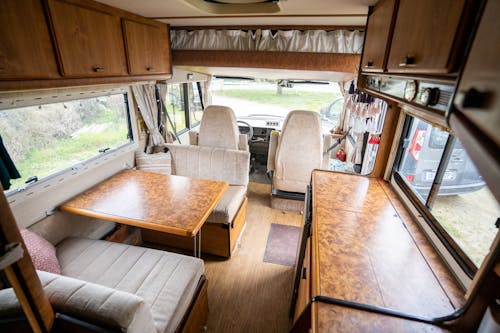
It’s tempting to build your rig with every possible amenity crammed inside. But overplanning often leads to heavy, complex setups that don’t actually serve your day-to-day needs. First-timers get caught up in maximizing storage instead of maximizing usability. Sometimes, simple designs work better than fancy ones.
Your needs on the road will evolve, and a rigid interior leaves no room for adjustments. A big built-in closet might seem smart until you realize you’d rather have a desk. Modular setups let you experiment and adapt. Flexibility is the most underrated design choice.
11. Forgetting About Internet Access
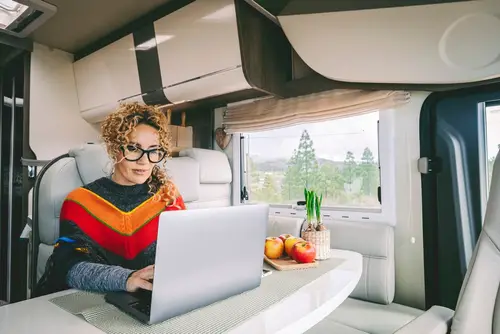
Mobile living sounds like freedom, but many first-timers still need to work, stream, or stay connected. Assuming coffee shops will cover your Wi-Fi needs is unrealistic. Coverage can be patchy, especially in rural or mountainous areas. Without a plan, you’ll face frustration instead of flexibility.
Mobile hotspots, signal boosters, or satellite internet aren’t luxuries anymore—they’re lifelines. If you need connectivity for work, they’re non-negotiable. Even for leisure, having your own reliable setup makes travel smoother. Skipping this step is one of those mistakes people only make once.
12. Ignoring Legal and Parking Rules
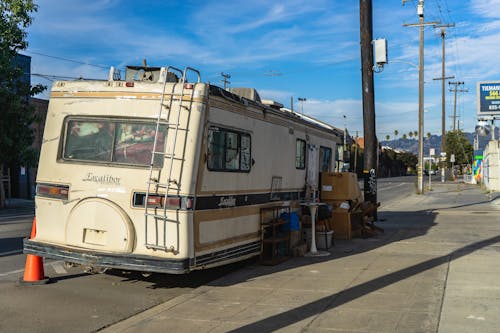
You can’t just park anywhere overnight, but many first-timers assume otherwise. Cities often have strict ordinances against vehicle camping, and fines add up fast. Even in rural areas, staying in the wrong spot can upset locals or land you in trouble. Respecting rules is part of being a good traveler.
Researching ahead saves headaches. Campgrounds, BLM land, and apps like iOverlander exist for a reason. If you treat every parking lot as a free campsite, you’ll quickly burn bridges. Following the rules keeps the lifestyle sustainable for everyone.
13. Expecting It to Feel Like Vacation All the Time

One of the biggest misconceptions is thinking mobile living is a permanent holiday. The reality is, daily chores don’t disappear—they just look different. You’ll still cook, clean, dump tanks, and deal with breakdowns. Romanticizing the lifestyle too much sets you up for disappointment.
That doesn’t mean it’s not rewarding. The freedom to wake up by the ocean or in the mountains is incredible. But balance comes from accepting both the magic and the mundane. First-timers who embrace the reality enjoy the lifestyle far more than those who expect perfection.
This post 13 Mobile Living Mistakes That First-Timers Always Make was first published on Greenhouse Black.
